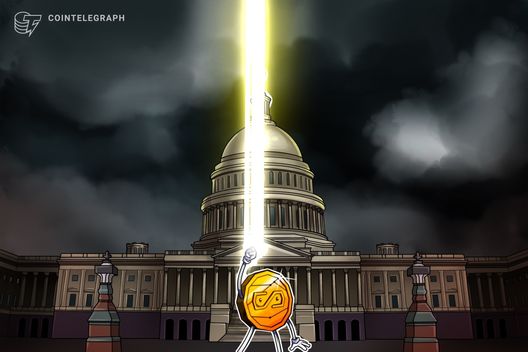

The GENIUS Act, aimed at establishing a regulatory framework for stablecoins in the United States, has advanced significantly in the Senate after a key procedural vote on Wednesday, June 11, 2025. The Senate voted 68-30 to invoke cloture on the Guiding and Establishing National Innovation for U.S. Stablecoins Act, setting it up for a final vote potentially as early as Monday, unless Republican and Democratic leadership reach an agreement to expedite the process.
This development marks a crucial step forward for the bill, which has faced delays and divisions. The cloture vote, a procedural move to end debate and move towards a vote, signals increasing momentum and bipartisan effort to regulate stablecoins. Senate Banking Committee Chair Tim Scott, a co-sponsor of the bill, hailed it as a "significant win for innovation and national security," emphasizing the bipartisan cooperation that led to this point. Senate Majority Leader John Thune echoed this sentiment, stating that the GENIUS Act would help bring cryptocurrency into the mainstream.
The GENIUS Act seeks to create the first-ever U.S. regulatory framework for stablecoins, digital tokens pegged to the value of the dollar. The bill would require stablecoins to be fully backed by U.S. dollars or similarly liquid assets. It would also mandate annual audits for issuers with a market capitalization exceeding $50 billion and address foreign issuance.
Despite the progress, the bill has faced opposition, particularly from some Democratic senators. Concerns have been raised regarding provisions related to foreign issuers, anti-money laundering standards, the potential for corporate issuance of stablecoins, and former President Trump's ties to crypto ventures, including the launch of a stablecoin by World Liberty Financial, a venture linked to his family.
Senator Elizabeth Warren has been a vocal critic, expressing concerns about potential conflicts of interest arising from Trump's involvement in the crypto space. She has argued that the bill doesn't do enough to strengthen oversight of an industry from which the President's family directly benefits. Warren also raised issues about potential corruption, suggesting the bill could facilitate the trading of presidential favors for financial gains.
The House of Representatives is also considering related legislation. The House Financial Services Committee and the House Agriculture Committee have both advanced the CLARITY Act, a bill addressing broader crypto market structures. However, this bill has also encountered proposed amendments from Democrats aimed at addressing potential conflicts of interest related to Trump's crypto involvement. Some lawmakers have suggested combining the stablecoin bill with the larger crypto market structure bill.
If the GENIUS Act passes the Senate, its future in the House remains uncertain. The evolving landscape of crypto regulation and the political considerations surrounding digital assets continue to shape the legislative path forward. President Trump has indicated that he would sign stablecoin legislation if it reaches his desk before August, adding further impetus to the ongoing efforts in both chambers of Congress.